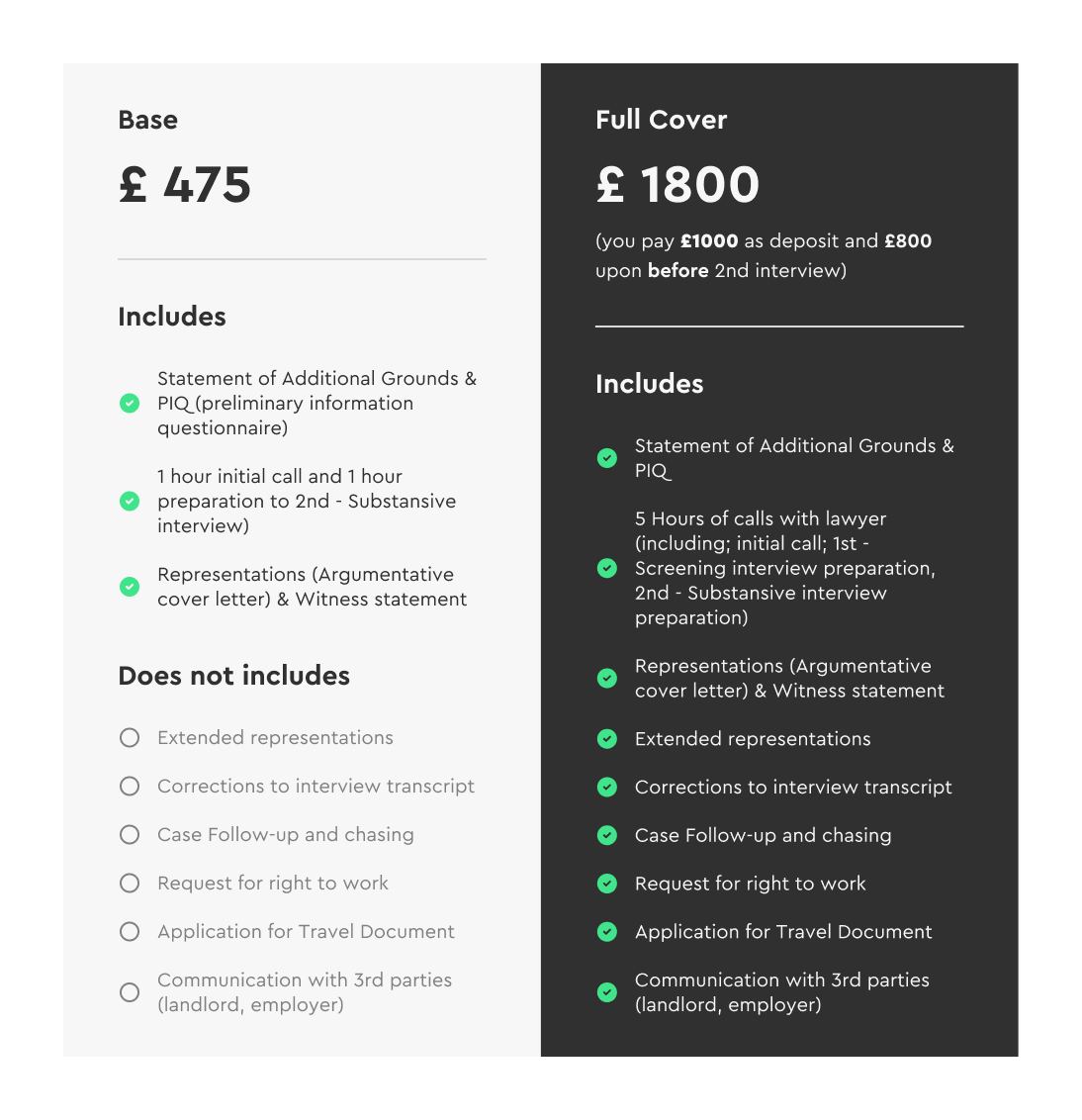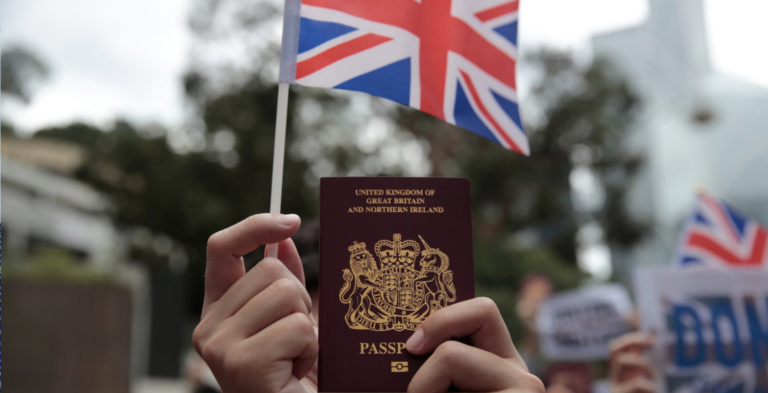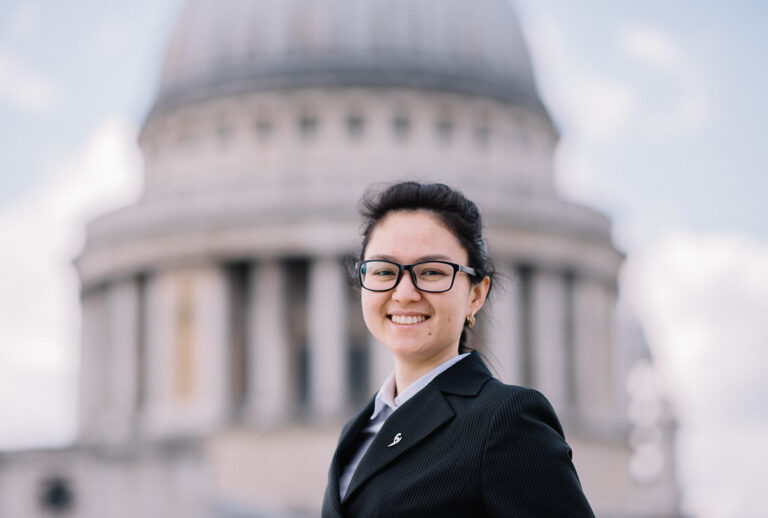Asylum

Seeking asylum is a difficult decision that individuals make when they feel they are no longer safe in their home country. Asylum seekers in the United Kingdom often experience an intimidating and complex legal system. That is where immigration experts like Sterling Law come in.
Sterling Law is a team of experienced legal professionals in London who provide legal representation for asylum claims. We handle individual asylum cases with meticulous attention, fully understanding the hardships and emergency you and your family are going through. We are here to help asylum seekers navigate through each stage of the cumbersome process and efficiently secure asylum status in the UK.
- What is an Asylum Seeker?
- What Are Asylum Claim Criteria?
- How to Claim Asylum in the UK?
- What Documents Must be Provided For Asylum in the UK?
- How is a Screening Interview Held?
- How is a Substantive Interview Held?
- What If The Asylum Application Is Successful?
- Can UK Asylum Application be Refused?
- How Can We Help?
What is an Asylum Seeker?
An asylum seeker is someone who has fled their home country due to persecution or fear of persecution based on their race, religion, nationality, political opinions, sexual identity, or membership in a particular social group. Seeking asylum in the UK means that an individual submits an application to the government to stay in the country as a refugee. The UK is a signatory to the United Nations Refugee Convention in 1951, which means that it has an obligation to protect refugees and people claiming asylum.
When an individual arrives in Great Britain with an intention of claiming asylum, the first step is to make an initial asylum application. This process usually occurs at a border port or airport where the person meets with an immigration officer to explain their situation and reasons for seeking asylum. The immigration officer will ask a series of questions (this is called “screening”) and complete an initial assessment to determine whether the person meets the requirements for asylum. This assessment considers whether the individual has a well-founded fear of persecution in their home country and if their fear is based on one of the protected grounds mentioned by the United Nations Refugee Convention.
If the assessment determines there is a credible fear of persecution, the person will be allowed to remain in the UK while their asylum claim is processed. If the application is rejected, the person may be detained and face removal from the country.
Asylum seekers in the UK are entitled to legal protection, housing, healthcare, and other support until their application is processed. However, the process of claiming asylum in the UK can be lengthy and complicated, and the outcome is determined on a case-by-case basis. That is why it often takes a team of expert immigration professionals like Sterling Law to guide and represent asylum seekers in their quest for security and quality life.
What Are Asylum Claim Criteria?
In order to be eligible for asylum in the UK, you must be facing persecution in your home country due to your race, religion, nationality, sexual orientation, gender identity, political views, or other factors related to the social, cultural, religious, or political situation in your country. This persecution must have gone unresolved by authorities in your home country. If you are stateless, your usual country of residence will be considered. However, if you are from an EU country, have travelled through a “safe third country,” or have a connection to a safe third country where you could claim asylum, your claim may not be considered.
Members of your family, such as partners and children under 18, can be included as “dependants” and may stay for the same amount of time as you if your application is successful. However, they will not receive refugee status unless they make their own claim for asylum. Refugee status provides protection under the Refugee Convention, allowing for potential opportunities, such as family reunion or a refugee integration loan.
Note that your claim may not be considered under certain circumstances. These include being from an EU country, travelling through a safe third country, or having a connection to a safe third country where you could have claimed asylum instead.
It’s important to know what constitutes a safe third country under UK law as well, as this is a key factor in determining the legality of your claim. According to the regulations, a safe third country is one where you are not a citizen, where you would not face harm, and where you would not be sent on to another country where you would be at risk of harm. By understanding these guidelines, asylum seekers can be better informed about their chances of success in the UK and make more informed decisions about their claims.
How to Claim Asylum in the UK?
An application for asylum is made immediately upon entering the country, at an airport or border port which is known as screening. If you postpone applying for UK asylum, your application is likely to be rejected.
Right after entering the country, you must tell a Border Force officer that you are seeking asylum and want to claim refugee status. A Border Force will register your application and perform a screening interview where you must describe your situation and name foundations for seeking asylum. You can ask the Border Force to provide an interpreter if necessary.
At your screening interview, a Border Force will take your photograph and fingerprints. You will also answer questions about who you are, where you’re from, and why you are seeking UK asylum. You can bring written evidence to support your claim, as well as any other documents that may assist in approving your claim. You must also mention that you have dependents, and inform the officer if you or anyone in your family is taking medication or needs medical care.
If you are already in the United Kingdom and wish to claim asylum, you need to call the asylum intake unit on the telephone 0300 123 4193 to start your asylum registration process.
Once a claim is made and a screening interview is held, an asylum applicant will be assigned to be a caseworker who will be the person’s main point of contact throughout the process. Following this, the applicant is usually required to undergo a Substantive Interview, after which their case is evaluated and a verdict is reached. Additional interviews or evidence may be requested during the asylum procedure.
What Documents Must be Provided For Asylum in the UK?
To apply for asylum in the UK, you must furnish specific documents for yourself and any dependents, including your partner and children below 18 years old, during the asylum screening process. These documents encompass passports, travel documents, ID cards, birth and marriage certificates, academic records, and any other relevant evidence that bolsters your application.
If you are already residing in the UK, you and your dependents will be required to present documents as proof of your UK address. The specific documents needed may vary based on whether you are living in your own accommodation or staying with someone else.
If you are residing in your own accommodation, you must provide documents that clearly state your full name and address. Examples of acceptable documents include a bank statement, housing benefit book, council tax notice, tenancy agreement, or household bill.
If you are staying with someone else, you will need to submit a recent letter (less than 3 months old) from the person you are residing with, confirming that you have their permission to stay. Additionally, you must provide documents that show the full name and address of the person you are staying with, such as a council tax notice, tenancy agreement, or household bill.
How is a Screening Interview Held?
A screening interview is the first step in the asylum claim process for individuals who have already entered the UK. The purpose of the interview is to gather basic information from the asylum seeker and determine their eligibility for assistance while their asylum claim is being considered.
A screening interview is typically conducted at the port of entry to the UK by an immigration officer on the same day. If you are claiming asylum after entering the UK, you will usually be interviewed at a screening department of the asylum intake unit.
During the UK screening interview for asylum, the immigration officer will ask about the individual’s personal details, such as their name, age, nationality, religion, job, occupation, and how they entered the UK. An officer will also ask about the reasons for seeking asylum, including any fears of persecution in their home country.
The officer may ask specific questions regarding the individual’s age and family background, if relevant. During the screening procedure, an asylum seeker will also need to provide proof of their personal details, such as a passport, travel document, birth certificates, and others.
During the screening interview, biometric information (fingerprints and photographs) will also be taken. A person should inform the office if they hold any type of UK visa, and whether they or their dependents have any health issues.
The entire interview should take approximately 1-2 hours, and you will be assigned a caseworker upon its completion. The immigration office will then submit your screening interview data to The Home Office, so the authority will decide whether to give you a further substantive interview.
How is a Substantive Interview Held?
Asylum seekers in the UK are required to go through a substantive interview to determine their eligibility for refugee status. This interview is usually conducted alone, without any family members present. If the asylum seeker requires an interpreter, one will be provided. The Home Office will send a letter informing the individual of when and where the interview will take place, as well as whether any dependents will also need to be interviewed.
The questions asked during the interview can be intimate and hard to answer. They may require the individual to provide detailed information about their country of origin, their reasons for seeking asylum, personal circumstances, and why they are afraid of returning to their home country. Information disclosed will be kept confidential and never shared with the authorities in their own country.
It is important for the asylum seeker to answer truthfully and provide as much information as possible to support their case. If you provide false information on your application, you may face jail time up to 2 years, or be forced to leave the UK immediately.
As an asylum seeker, you may receive asylum support while waiting for the decision. This includes housing, cash support, extra money for pregnant or young children, a one-off maternity payment, free healthcare, and free education for children aged 5-17. However, you cannot work while waiting for a decision.
Applying as a Child
When an adult family member is making an asylum claim, children can apply as part of their family’s application. However, if a child is unaccompanied, they will need to enlist the services of a solicitor to bring their case to the Home Office.
The asylum application process for children is similar to that of adults. In order to apply, children can either notify someone at the port of entry or contact the national intake unit in Croydon if they are already in the UK. The process continues with a welfare interview and filling out a statement of evidence form with their solicitor, followed by a substantive interview. Ultimately, the Home Office will make a decision on their case.
In recognition of the unique needs of children, specially trained professionals are responsible for conducting interviews with children. If their application is unsuccessful, children may still have the right to appeal the Home Office’s decision. By following this process, vulnerable children are able to access the protection they need and deserve.
What If The Asylum Application Is Successful?
The Home Office commonly reviews each asylum application for 6 months. It can take even longer if:
- the supporting documents need verification, or they are absent at all;
- there is a need for additional interviews;
- It is a complicated case where an applicant has a criminal conviction or is currently being prosecuted.
If an asylum application in the UK is successful, a person will be allowed to stay in the country as a refugee, under humanitarian protection, or for other reasons.
Permission to Stay as a Refugee
If a candidate is granted refugee status in the UK, they will be classified as a Group 1 or Group 2 refugee depending on certain conditions. Group 1 refugees may be given permission to stay for a minimum of 5 years and can apply to settle in the UK after this time, while Group 2 refugees may be given permission to stay for a minimum of 30 months and can apply to settle in the UK under long residency rules after 10 years.
Dependants of refugees included in their application will usually get permission to stay for the same amount of time as the refugee themselves, but must make their own asylum claims to be given refugee status. Refugee status allows for applying for family reunion and a refugee integration loan. It also grants a permission to work, study, and claim public benefits.
Upon approval, a person will be issued a Biometric Residence Permit containing their personal information, photograph and fingerprints. This permit serves as evidence that a person is eligible to reside and work in the United Kingdom. When travelling, a person must avoid using their national passport and instead, apply for travel documents.
Permission to Stay For Humanitarian Protection
People who do not meet the requirements for refugee status may still be eligible to obtain humanitarian protection in the United Kingdom. This involves permission from the UK government to remain in the country based on humanitarian considerations and circumstances not regulated by the Refugee Convention.
Asylum seekers and their family members may receive temporary humanitarian permission to remain in the UK for at least 30 months. After a decade, they have the opportunity to apply for Indefinite Leave to Remain in the UK by fulfilling the long residency requirements.
Other Reasons to Stay
If you are unable to qualify for permission to stay in the UK as a refugee or on humanitarian grounds, there are still other reasons that may grant you permission to remain, including unaccompanied minor leave to remain until a certain age, Discretionary Leave or Restricted Leave. These types of permissions allow individuals to remain in the UK for a specified period of time, depending on their unique circumstances. The length of your stay will vary based on your individual situation. Towards the end of your stay, you may have the opportunity to apply for an extension on your stay or even apply for settlement in the UK.
Can UK Asylum Application be Refused?
Yes. This can happen if the asylum application is not made within 3 months of the person‘s arrival in the UK, or if the applicant has previously sought asylum in the UK and was refused. Other reasons for asylum application rejection in the UK are if the applicant has submitted the application for asylum outside the UK and there are reasonable grounds to believe that the applicant has not come directly from a territory where their life or freedom was threatened.
What If My Asylum Application Is Rejected?
In the event that you are not granted refugee status and your caseworker determines there is no other reason for you to remain in the UK, you may be required to leave the country.
However, there is the possibility of appealing this decision, usually to the First-Tier Tribunal, within 14 days. If unsuccessful at the First-Tier Tribunal, there are three additional stages of appeal available, including the Upper Tribunal, Court of Appeal and Supreme Court. It is important to appeal within the given time frame, as failure to do so may result in forced removal from the country.
Sterling Law is a London-based legal firm that specializes in assisting with UK asylum application appeals and can provide necessary guidance and support throughout the process.
How Can We Help?
Sterling Law is a dedicated legal firm with years of experience helping individuals to seamlessly obtain asylum in the UK. Our team of experts has handled thousands of cases and won hundreds of appeals for asylum applications with complex circumstances, finally allowing people to live happily and safely in Great Britain.
You can trust that we have the expertise to help you navigate the often-complicated procedure of asylum seeking. Thousands of clients have already found success with Sterling Law, and we want to help you too. Contact us today to learn more about how we can assist you with claiming the asylum you deserve.
Frequently Asked Questions
How to claim asylum in the UK?
To seek asylum in the United Kingdom, individuals must be physically present in the country and inform the UK authorities that they are seeking protection as a refugee. This can be done by approaching the UK Border Force, immigration officials, or by submitting an asylum claim with an authorized immigration office.
Can asylum seekers work in the UK?
As a rule, asylum seekers are not allowed to work in the UK while their asylum application is pending.
What is the difference between an asylum seeker and a refugee in the UK?
An asylum seeker is an individual who has applied for refugee status and is awaiting a decision on their claim. A refugee is a person who has been granted protection and recognized as someone who fled their country due to well-founded fear of persecution.
What support do asylum seekers get in the UK?
In the United Kingdom, asylum seekers are eligible to receive various forms of assistance. This includes provisions such as housing, financial support, and access to healthcare services provided by the National Health Service (NHS). Additionally, asylum-seeking families may also qualify for educational support for their children, as well as access to other vital services that they may require.
Can you apply for asylum from outside the UK?
Generally, individuals must be physically present in the UK to apply for asylum. However, there are limited circumstances where individuals can make their asylum claim from outside the UK, such as if they are already recognized as refugees by the UN Refugee Agency.
What does it mean to seek asylum?
Seeking asylum entails the act of individuals leaving their country of origin and seeking refuge in another nation due to a legitimate apprehension of persecution or significant harm based on factors such as their race, religion, nationality, political beliefs, or affiliation with a specific social group.
What happens if an asylum claim is denied in the UK?
If an asylum claim is denied in the UK, the individual may have the option to appeal the decision. If the appeal is unsuccessful, they may be required to leave the country.





















